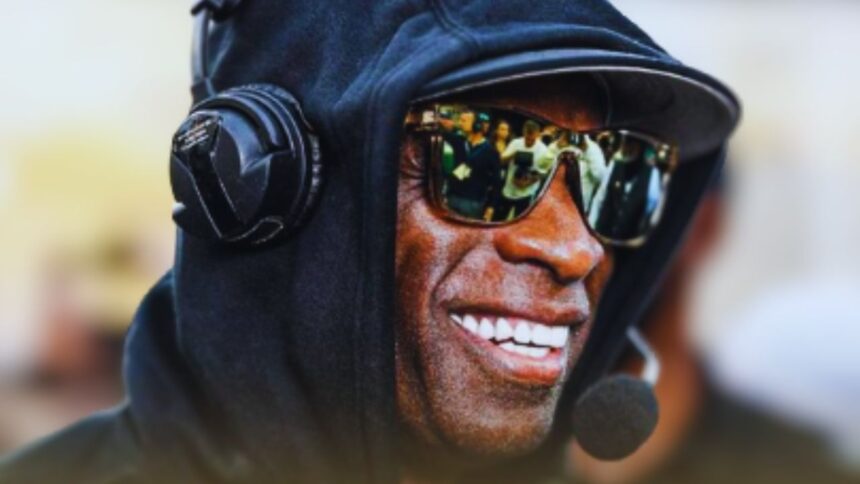In the fast-paced world of sports, where competition often takes center stage, moments of genuine compassion and empathy can sometimes get lost in the shuffle. However, recently, Deion Sanders, the esteemed head coach of the Buffs, reminded us all of the profound impact such moments can have, especially in the lives of athletes facing personal struggles.
The narrative unfolded during a game when Sanders, known affectionately as “Coach Prime,” took a pause from the action to connect with one of his players, Nahmier Robinson. The significance of this moment cannot be understated, as Robinson finds himself navigating through a tumultuous time with his family. His father, Nate Robinson, a former NBA player, is battling a severe health condition, one that has cast a shadow of uncertainty over their lives.
Nate Robinson’s health journey traces back to his days with the New York Knicks in 2006 when he was diagnosed with high blood pressure, a diagnosis that would ultimately lead to the deterioration of his kidneys. The subsequent diagnosis of renal kidney failure painted a grim picture, one that necessitated urgent intervention in the form of a kidney transplant to prolong his life.
For Nahmier Robinson, witnessing his father’s health decline has undoubtedly been a source of immense stress and concern. Yet, amidst this backdrop of adversity, Sanders’ gesture of support provided a glimmer of hope and comfort. Calling Robinson to the sidelines, Sanders engaged in a one-on-one conversation, expressing genuine care and offering a shoulder to lean on. “How you doing? If you need us let me know. Alright? I’m proud of you boy. Keep balling man,” Sanders reassured Robinson, his words carrying the weight of both encouragement and solidarity.
The emotional exchange did not go unnoticed, capturing the attention of not only the press but also fans worldwide. In a subsequent press conference, Sanders shed light on the importance of prioritizing the well-being of his players beyond the confines of the game. He emphasized the myriad resources available within the team to support players facing personal challenges, underscoring Robinson’s significance as a cherished member of the team.
Sanders’ personal connection with Nate Robinson adds another layer of depth to his support for Nahmier. Having known Nate on a personal level, Sanders spoke fondly of Nahmier’s character and resilience, admiring his unwavering focus amidst adversity. Through his actions and words, Sanders exemplified the essence of compassionate leadership, demonstrating a profound understanding of the human element inherent in sports.
Beyond Robinson’s situation, Sanders addressed other team matters, including the hiring of Warren Sapp and the departure of 5-star CB Cormani McClain to the transfer portal. Despite any past differences or challenges, Sanders expressed nothing but goodwill towards McClain, extending heartfelt wishes for his future endeavors.
In a world where headlines often highlight the triumphs and defeats on the field, Sanders’ act of compassion serves as a poignant reminder of the power of human connection in sports. His ability to navigate the complexities of coaching with empathy and understanding not only elevates him as a leader but also sets a shining example for coaches everywhere.
In the end, Deion Sanders’ heartfelt support for Nahmier Robinson amidst his family’s crisis not only touched the hearts of those present but also resonated deeply with anyone who values the human side of sports. It is moments like these that remind us of the profound impact a simple act of kindness can have, transcending the boundaries of the game and leaving an indelible mark on the lives it touches




